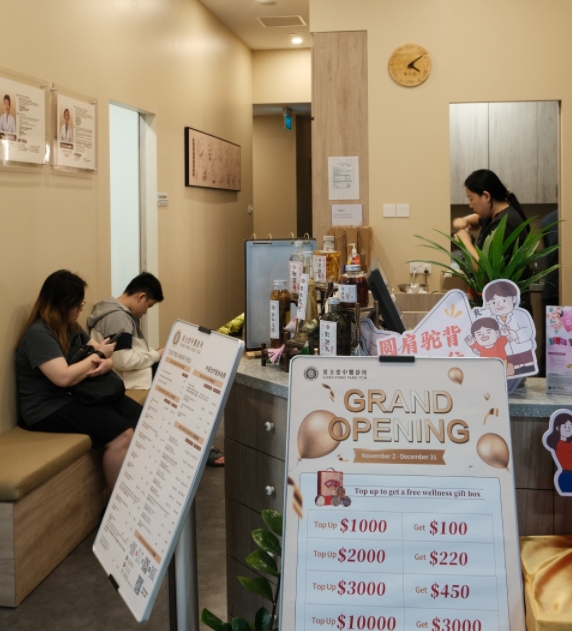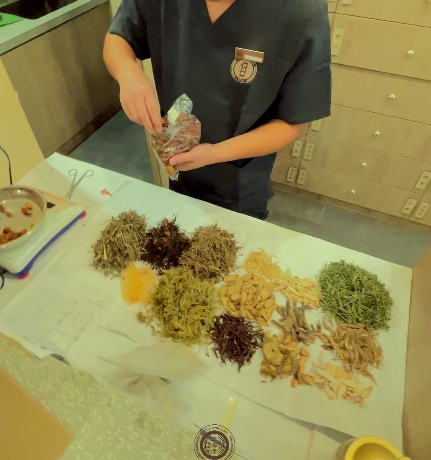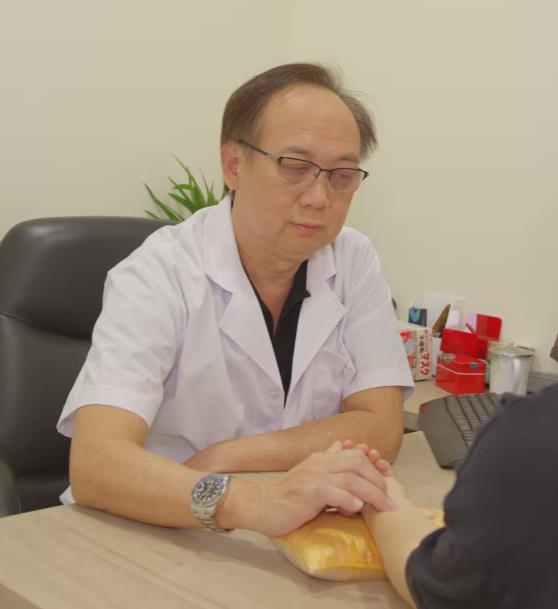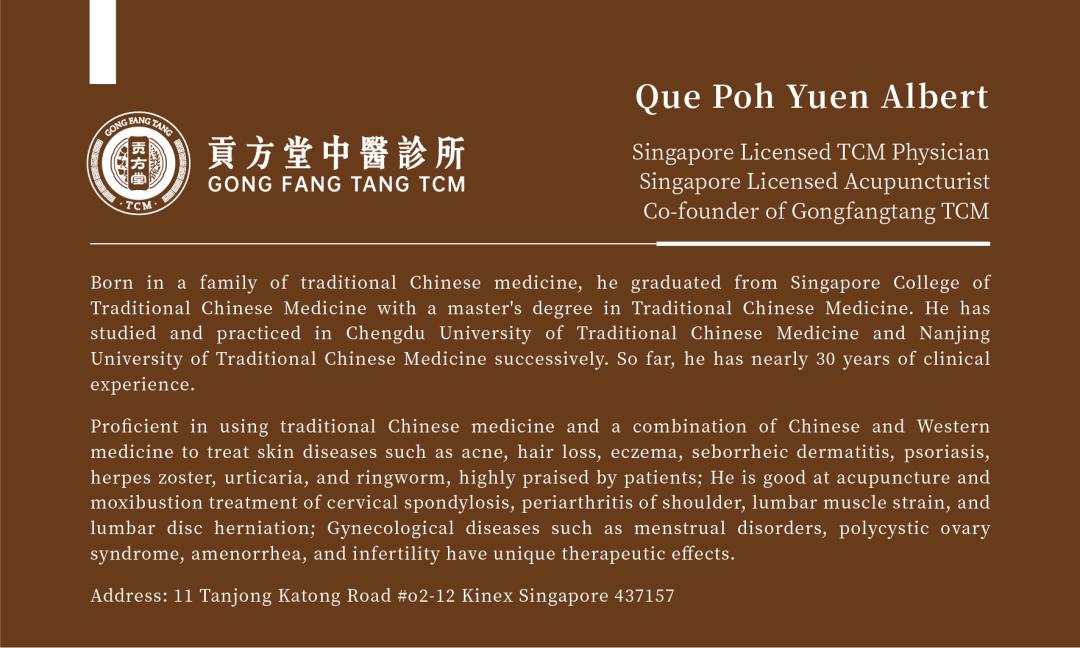Do you often feel physically weak and mentally fatigued? This could very well be a signal of kidney deficiency. The kidneys, as vital organs in the human body, are not only responsible for metabolism and detoxification but also crucial for human growth, development, and reproductive function. What is the fastest way to nourish the kidneys and essence through diet?

What Causes Kidney Deficiency in Men?
According to Dr. Que Poh Yuen Albert, a TCM men's health specialist at Singapore Gong Fang Tang TCM, the causes of kidney deficiency in men are relatively complex from a TCM perspective. Firstly, overexertion and poor lifestyle habits are primary factors. Long-term staying up late, lack of exercise, smoking, and excessive alcohol consumption can disrupt the body's biological clock and deplete kidney essence. Secondly, excessive work and life stress, prolonged anxiety, depression, and other negative emotions can affect the normal function of the kidneys. Furthermore, innate constitutional insufficiency or the natural decline of kidney function with age can also lead to kidney deficiency. Additionally, chronic illnesses that affect the kidneys can similarly cause kidney deficiency problems.
What are the Symptoms of Kidney Deficiency?
Symptoms of kidney deficiency are diverse and involve multiple aspects of the body. In terms of physical function, it often manifests as soreness and weakness in the lower back and knees, easy fatigue, and difficulty regaining energy even after sufficient rest. In terms of sexual function, problems like decreased libido, premature ejaculation, and nocturnal emissions may occur. Regarding the urinary system, there may be frequent urination, urgency, and increased nocturia. Mentally, symptoms like dizziness, tinnitus, memory decline, and poor concentration are common. Some people may also experience external manifestations like hair loss and loose teeth.

What Foods Are Effective for Nourishing the Kidneys in Men with Kidney Deficiency?
To address kidney deficiency, Senior TCM Physician Dr. Que Poh Yuen Albert shares a classic renowned formula—the Modified Shenqi Decoction (Jiajian Shenqi Tang)—which has received good feedback in clinical applications. This formula is based on the Jinkui Shenqi Pill and specifically functions to warm and tonify kidney yang and strengthen the lower back and spine.
The Modified Shenqi Decoction consists of: Shu Di Huang (Prepared Rehmannia Root), Shan Zhu Yu (Cornus Officinalis Fruit), Shan Yao (Chinese Yam), Fu Ling (Poria), Dan Pi (Tree Peony Bark), Ze Xie (Alisma Rhizome), Rou Gui (Cinnamon Bark), Shu Fu Pian (Prepared Aconite Lateral Root), Du Zhong (Eucommia Bark), Po Gu Zhi (Psoralea Fruit), Hu Tao Rou (Walnut Kernel).
In the formula: Shu Di Huang, Shan Zhu Yu, Shan Yao, Fu Ling, Ze Xie, Dan Pi, Shu Fu Pian, and Rou Gui warm and tonify kidney yang. The addition of Du Zhong, Po Gu Zhi, and Hu Tao Rou tonifies the kidney and strengthens yang, invigorates tendons and bones. Compared to the Shenqi Pill, its power to tonify the kidney and strengthen bones is superior.
Skillful Modifications:
If the patient also exhibits spleen deficiency symptoms, add Dang Shen (Codonopsis Root) and Bai Zhu (White Atractylodes Rhizome) to fortify the spleen and boost qi.
If accompanied by soreness and pain in the lower back and knees, add Du Zhong (Eucommia Bark) and Niu Xi (Achyranthes Root) as appropriate to strengthen the lower back and tonify the kidney.

Medical Case
Patient: Mr. Shen, 42 years old.
Chief Complaint: Severe decline in energy over the past 2 years, aversion to cold (needs to wear a jacket in air-conditioned rooms), soreness, coldness, and weakness in the lower back and knees, significant decline in sexual function (erectile dysfunction), nocturia 3-4 times. Also feels dry mouth but no desire to drink, and occasionally loose stools. High work pressure, often stays up late. Self-administered deer antler and maca previously with no effect and instead experienced symptoms of excess heat.
Examination: Pale complexion, weary spirit. Tongue: pale, swollen with teeth marks on the edges, coating white and slightly greasy. Pulse: deep, thin, and weak at the chi (kidney) position.
Diagnosis: Decline of kidney yang, complicated by spleen deficiency and dampness encumbrance.
Treatment Principle: Warm and tonify kidney yang, fortify the spleen and resolve dampness.
Prescription: Modified Shenqi Decoction (Jiajian Shenqi Tang).
Formula Ingredients:
Shu Di Huang (Prepared Rehmannia Root) 20g
Shan Zhu Yu (Cornus Officinalis Fruit) 12g
Shan Yao (Chinese Yam) 15g
Fu Ling (Poria) 15g
Ze Xie (Alisma Rhizome) 9g
Dan Pi (Tree Peony Bark) 6g (To nourish yin and drain turbidity)
Pao Fu Zi (Prepared Aconite Lateral Root) 6g (Decocted first)
Gui Zhi (Cinnamon Twig) 9g (To warm the kidney and assist yang)
Yin Yang Huo (Epimedium) 12g
Ba Ji Tian (Morinda Root) 12g (To enhance warming the kidney)
Chao Bai Zhu (Stir-fried White Atractylodes Rhizome) 15g
Dang Shen (Codonopsis Root) 12g (To fortify the spleen and boost qi)
Sha Ren (Amomum Fruit) 6g (Added later) (To awaken the spleen and resolve dampness)
Yi Zhi Ren (Alpinia Oxyphylla Fruit) 12g (To reduce urination)
Zhi Gan Cao (Honey-fried Licorice Root) 6g (To harmonize)
Administration: Decoct in water, take 1 dose daily, for 7 doses. Advised to avoid raw and cold foods, sleep before 11 PM, and set air conditioning temperature above 25°C.
Second Consultation: Aversion to cold and cold sensation in the lower back and knees significantly reduced, spirit improved, nocturia decreased to 1-2 times. Dry mouth sensation disappeared, stools formed. The formula was slightly adjusted (removed Sha Ren, added Tu Si Zi (Cuscuta Seed) 15g to secure essence) and continued for 14 doses.
Result: Physical strength and energy essentially returned to normal, aversion to cold disappeared, sexual function recovered.
